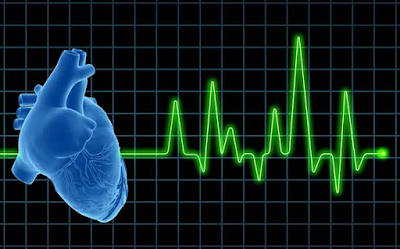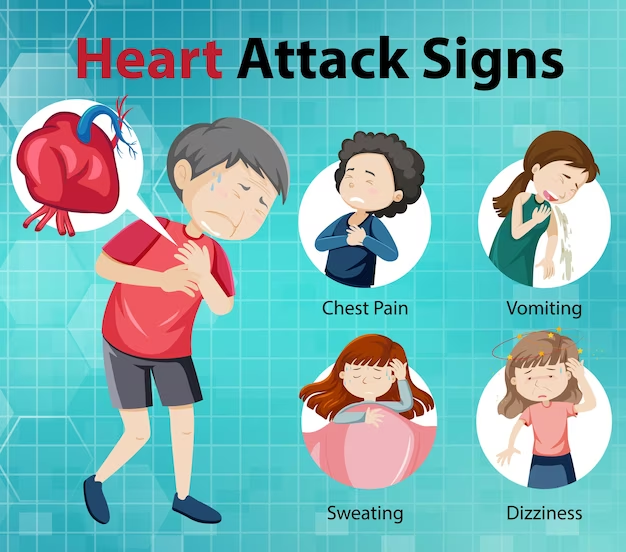Palpitation or Fast heart beat , all you should know ;
Overview :
Heart palpitations are feelings of having a fast-beating, fluttering or pounding heart. Stress, exercise, medication or, rarely, a medical condition can trigger them. Most people get them because of anxiety. Other causes include: pregnancy, caffeine, alcohol or spicy food.
Although heart palpitations can be worrisome, they're usually harmless. Rarely, heart palpitations can be a symptom of a more serious heart condition, such as an irregular heartbeat (arrhythmia), that might require treatment. Many people are unaware of minor irregular heartbeats, and even completely healthy people have extra or skipped heartbeats once in a while.
Causes :
Occasional, harmless palpitations can have many causes:
Stress or anxiety
- Strenuous activity
- Extreme fatigue
- Hormonal changes caused by pregnancy, menopause or menstruation
- Low blood pressure
- Caffeine
- Nicotine
- Alcohol
- Stimulant medications, including pseudoephedrine (a decongestant)
- Increasing age
- low carbon dioxide in your blood
- anemia
- dehydration
- some herbal and nutritional supplements
- Recreational drugs like cocaine and amphetamine
- However, some palpitations may be symptoms of a more serious condition, such as:
- Cardiomyopathy
- hyperthyroidism
- heart valve diseases
- Arrhythmias
Racing.
- Pounding.
- Missing a beat.
- Having an extra beat.
- Flip-flopping.
- Fluttering.
You can feel heart palpitations in your chest, as well as in your neck or throat.
Symptoms of palpitations are more likely to be related to an abnormal heart rhythm if you have:
- Heart Diseases.
- Significant risk factors for heart disease.
- An abnormal heart valve.
How long heart palpitation persist ?
Heart palpitations usually don’t last long. They usually last a few seconds or minutes, but they sometimes last longer.
- Medical history.
- Symptoms.
- Diet.
- Medications and herbal products you take.
- When and how often they happen.
- How long they last.
- How you feel when they happen.
- What you’re doing when they start.
- What helps you feel better.
A provider may order tests, such as:
- Blood tests.
- Urine (pee) tests.
- Electrocardiogram (ECG/EKG).
- Stress test.
- Echocardiogram (heart ultrasound).
- A Holter monitor you wear for a day or longer to record your heart’s activity.
- Electrophysiology study.
- Cardiac catheterization.
You may need to see an electrophysiologist. This is a provider who specializes in abnormal heart rhythms.
Managing palpitations involves a combination of lifestyle changes and, in some cases, medical intervention. Here's how to effectively manage them:
- Stress Reduction: Practicing relaxation techniques like deep breathing, meditation, and yoga to manage stress and anxiety.
- Healthy Lifestyle: Limiting caffeine and alcohol consumption, quitting smoking, and maintaining a balanced diet.
- Regular Exercise: Engaging in moderate and regular physical activity to improve cardiovascular health.
- Medication: In some cases, doctors may prescribe medications to regulate heart rhythms or manage underlying conditions.
- Hydration: Staying adequately hydrated to maintain electrolyte balance and support heart function.
- Avoid Triggers: Identifying and avoiding substances or activities that trigger palpitations.
- Medical Interventions: In cardiac causes , medical procedures like catheter ablation or implantable devices may be recommended.
Prevention :
Depending on what’s causing your heart palpitations, these tips can help you have them less often:
- Reduce your stress level with deep-breathing and/or relaxation exercises, yoga, tai chi, guided imagery or biofeedback techniques.
- Avoid or limit the amount of alcohol you drink.
- Avoid or limit the amount of caffeine in your diet.
- Don’t use tobacco or nicotine products.
- Exercise on a regular basis. Before you start, ask your healthcare provider what exercise programs are right for you.
- Avoid foods and activities that trigger palpitations.
- Control your blood pressure and cholesterol levels.
Conclusion:
Palpitations are a common symptom that can be caused by a variety of things. In most cases, they are harmless and go away on their own. However, if you have frequent or severe palpitations, or if they're accompanied by other symptoms, you should see a doctor to rule out a serious medical condition.
Here are some additional things to keep in mind about palpitations:
- Palpitations are often worse when you're lying down or sitting still.
- They can also be triggered by certain activities, such as exercising, drinking caffeine, or smoking.
- If you have palpitations, it's important to pay attention to your other symptoms. If you have any chest pain, shortness of breath, or dizziness, you should seek medical attention immediately.








Comments
Post a Comment